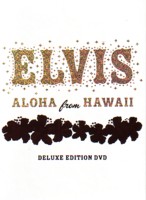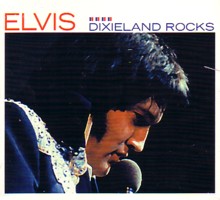Elvis was the King of Rock and Roll
|
by William O'Brien
In July of 1954 an aspiring young singer in Memphis, Tennessee was in the studio of Sun Records making a record. He was there at the behest of the founder of Sun Records, Sam Phillips, who was overseeing the recording and would be listed on the resulting records as “producer”.
At the end of the recording session, in which the aspiring entertainer sang several country ballads that Phillips thought good but not brilliant, the young man surprised Phillips by breaking into a spirited rendition of a rhythm and blues song, “That All Right ”, that the producer immediately recognized.
Phillips asked him to sing it again so he could make a better recording, and the singer readily agreed. The singer was Elvis Presley, and many historians date that recording session as the beginning of the rock and roll era . Presley's most recent biographer, a history professor with the unlikely name of Charles Ponce de Leon, points out that the meeting between Presley and Phillips was fortuitous in that both men, who were white Southerners, shared an interest in African American music and life that was unique in the segregated South of that time. |
 |
Phillips had grown up on a farm in Alabama where he had developed an appreciation for the music that was played in the Black bars and juke joints in that State before the Second World War. Presley had been born in Tupelo, Mississippi to a family of poor whites who had lived for a time in the Black section of that town where he had often attended African- American churches and social events. When Elvis- who was an only child- was a little boy his father, Vernon Presley, was sent to the Mississippi State Penitentiary for a time after he had forged his employer's name to a check, and de Leon theorizes that Elvis immersed himself in Black music as a means of dealing with the pain that that separation caused him. And when the Presley family moved to Memphis when Elvis was in grammer school, he began to frequent the various establishments in that City that featured African American singers and musicians.
Presley's recording of “That's All Right” was soon being heard on several Memphis radio stations at Phillips' urging, and after it was played listeners would often call the radio station and ask what local high school had Presley attended, which was a polite way of asking if he was Black or White. Soon Presley was appearing in a variety of forums throughout the South and West were be was billed as the “Hillbilly Cat” in recognition of how he combined elements of country music and rhythm and blues in his performances
The villain in most biographies of Presley is the mysterious Colonel Tom Parker, an illegal alien from Holland and former carnival operator who became Presley's manager in 1955. But De Leon offers a new interpretation of Parker , and credits him with Presley's crucial early success. Most managers of professional entertainers at that time had a variety of clients, but Parker's willingness to represent Presley alone, De Leon believes, is evidence of the fact that the Colonel sensed how popular his client could become if he was managed correctly.
The author also believes that Parker was one of the first promoters to grasp the importance of television as a medium, and relates how he placed Presley on a several early variety shows where he wasn't well paid but he did get exposure to a large audience.
“Before Elvis there was nothing”, John Lennon once said, and De Leon reminds us of how Presley earned the title of the “King of Rock and Roll” in the late 1950's. And he also chronicles how Presley's once promising movie career was mishandled by the studios, Colonel Parker, and Presley himself, and how the entertainer gradually slipped into a world of paranoia and drug addiction that would lead to his death at the age of 42.
But De Leon also makes clear that Elvis Presley was one of the most innovative and influential entertainers of the Post-War era.
Read EIN's review of Fortunate Son
|
|







